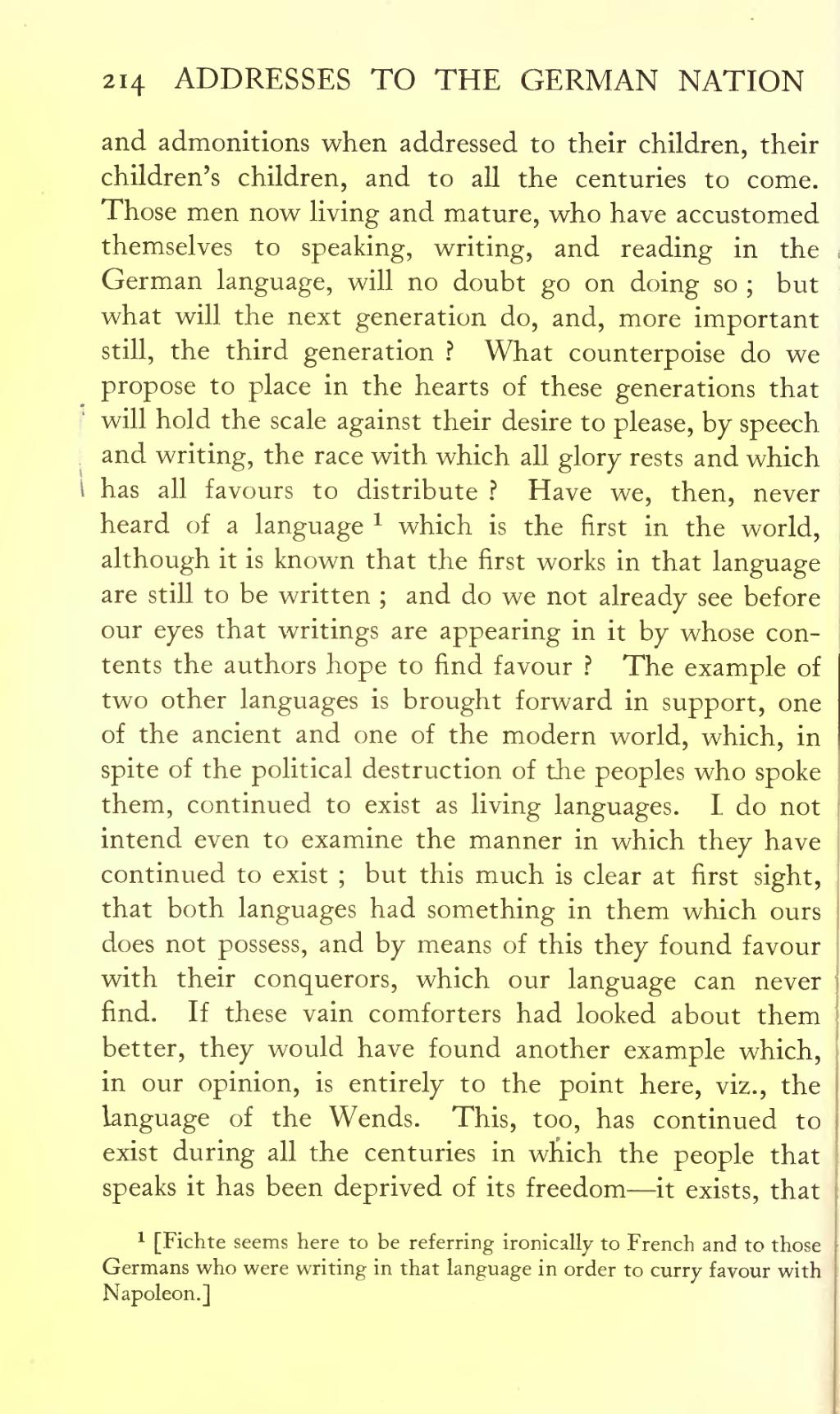and admonitions when addressed to their children, their children’s children, and to all the centuries to come. Those men now living and mature, who have accustomed themselves to speaking, writing, and reading in the German language, will no doubt go on doing so; but what will the next generation do, and, more important still, the third generation? What counterpoise do we propose to place in the hearts of these generations that will hold the scale against their desire to please, by speech and writing, the race with which all glory rests and which has all favours to distribute? Have we, then, never heard of a language[1] which is the first in the world, although it is known that the first works in that language are still to be written; and do we not already see before our eyes that writings are appearing in it by whose contents the authors hope to find favour? The example of two other languages is brought forward in support, one of the ancient and one of the modern world, which, in spite of the political destruction of the peoples who spoke them, continued to exist as living languages. I do not intend even to examine the manner in which they have continued to exist; but this much is clear at first sight, that both languages had something in them which ours does not possess, and by means of this they found favour with their conquerors, which our language can never find. If these vain comforters had looked about them better, they would have found another example which, in our opinion, is entirely to the point here, viz., the language of the Wends. This, too, has continued to exist during all the centuries in which the people that speaks it has been deprived of its freedom—it exists, that
- ↑ [Fichte seems here to be referring ironically to French and to those Germans who were writing in that language in order to curry favour with Napoleon.]
